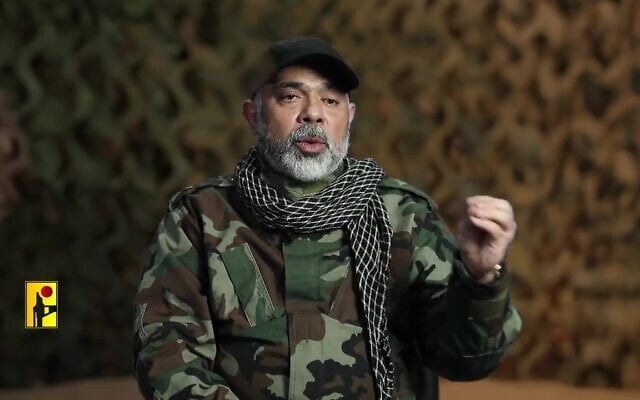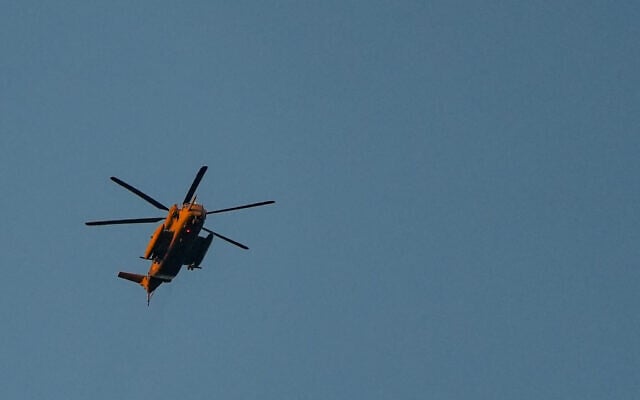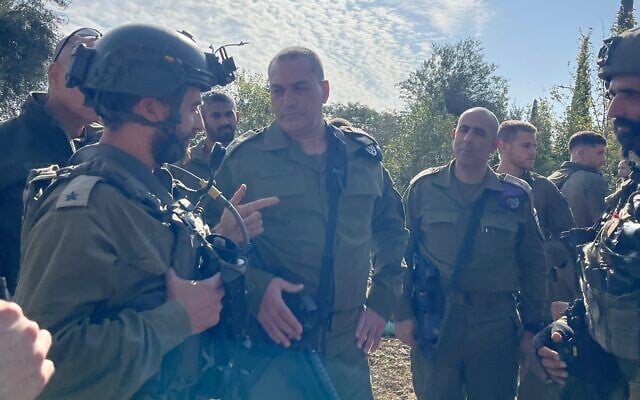In the wake of the killing of Hezbollah’s military chief in Beirut on Sunday, the Israel Defense Forces geared up for a potential response by the Iran-backed group, though there was no change in the guidelines for civilians.
The Israeli Air Force bolstered air defenses in the north for possible rocket fire by Hezbollah from Lebanon, and has also raised its level of alert, military sources said Monday.
However, the military had no specific information indicating that Hezbollah was planning a rocket barrage.
The Home Front Command, meanwhile, did not issue any changes to its guidelines for civilians.
Haytham Ali Tabatabai was the most senior Hezbollah commander to be killed by Israel since a ceasefire in November 2024 that sought to end more than a year of hostilities that began with cross-border attacks by the terror group, including rocket fire at communities.
Tabatabai was considered second only to Secretary-General Naim Qassem in Hezbollah’s command structure. He was killed in a targeted airstrike in the southern suburbs of Lebanon’s capital, Beirut.

Iran on Monday slammed Israel over the killing of Tabatabai.
“The Iranian foreign ministry strongly condemns the cowardly assassination of the great commander of the Lebanese Islamic Resistance, the martyr Haytham Ali Tabatabai,” the foreign ministry said in a statement.
The killing “constitutes a flagrant violation of the November 2024 US-brokered ceasefire and a brutal breach of Lebanon’s national sovereignty,” it said.
Hezbollah rocket fire at the north of the country, which began the day after the Hamas-led invasion of southern Israel on October 7, 2023, forced the evacuation of 60,000 residents and caused widespread damage to some communities. The escalation in the north led to all-out war in September 2024, in which Israel decimated Hezbollah’s leadership and arsenal.
Israel has been escalating its strikes on Hezbollah in recent weeks, accusing the terror group of violating the year-old ceasefire and increasingly attempting to rebuild its capabilities, and expressing frustration at lagging Lebanese efforts to disarm the group.
An unnamed Israeli security source told the Saudi-based Al-Hadath outlet that with just a few days of warfare, Hezbollah could be significantly weakened for many years. The source said that the Lebanese government is not going to deal with disarming Hezbollah, as it has committed to do, and that Israel will not sit back and wait. The source stressed that if Israel does not act against Hezbollah by the end of the year, the terror group could launch a surprise attack on the country.
Israel says that under the terms of the ceasefire, it has the right to strike at Hezbollah threats.

Meanwhile Monday, IDF Chief of Staff Lt. Gen. Eyal Zamir announced a snap drill aimed at testing the military’s readiness for various scenarios, starting with sudden developments on the northern border.
The IDF said the drill will last several days and will “assess and improve the IDF’s readiness for a range of scenarios.”
The drill opened with an inspection of the 210th “Bashan” Regional Division — responsible for the border with Syria in the Golan Heights and the Mount Dov area on the border with Lebanon — to examine their readiness for an unexpected incident, the military said.
Zamir visited the 210th Division on Monday morning, according to the IDF. In addition to inspecting the drill, the military said Zamir was updated on the army’s preparations on the Lebanon border, and he instructed troops to increase their level of alert following the killing of Tabatabai.

The military said situation assessments and decision-making processes would be checked at all levels as part of the drill, along with the activation of troops and the management of forces on the battlefield.
The IDF warned that there may be sounds of explosions and an increased presence of military forces and aircraft in the Golan Heights during the drill.
The exercise was pre-planned, according to the IDF, apparently indicating that it was not due to a change in circumstances after the slaying of Tabatabai the day before.

